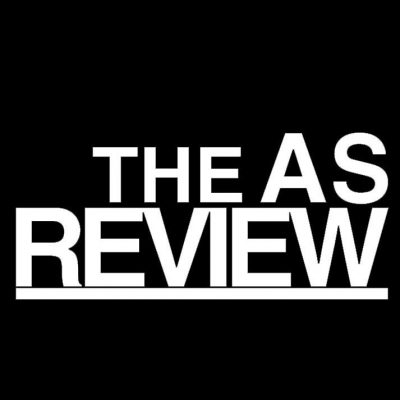By Julia Berkman
The Old Main Theater was pitch black. The live band was waiting and when the lights came up, the cast of First Person was on the stage, lined up on stools.
First Person: Diverse Student Stories was broken into eight monologues from different cultural backgrounds. Each of them were tied together because they attended Western. As the name might suggest, most of them were the first in their family to graduate from college.
It is important to note that though the ones telling the story are actors, the stories themselves reflect narratives at play in Western’s community. Writer and Assistant Professor of Journalism Maria McLeod spun the monologues from interviews with Western students.
The first person (heh) to speak was Noor, a Muslim women, about the impact 9/11 had on her life. Her family car was burned while they were in a mosque. When she was young, she had thought it was something she caused, that her family deserved the hate crime.
As Noor grew older, her family repeatedly drilled the importance of her reputation. She couldn’t go to sleepovers, parties, or be seen with a boy. Noor realized that her parents were immigrants in a foreign land, desperately clinging onto their culture.
Now, as a college student, Noor doesn’t wear the hijab or pray five times a day. Just as there is a spectrum of Christians, she explains, there is one for each religion. She wants to pass on this message: We are your neighbors. We are your equals.
After Noor left the stage, Von Ochoa took to the stage as Arnold, a Filipino descendant of the Coast Salish peoples. His people have a spiritual connection to the sea that always resonated with him. Being a quarter Filipino made Arnold something of a spectacle growing up on his reservation. He explained that eventually, he realized that people bullied for attention, and he could easily turn attacks on him into a joke in which everyone could participate.
Arnold’s recurring theme touched upon was the expectation that Native peoples don’t attend higher education. To combat those stereotypes, Arnold plans to take a more active role in his community.
Rayn performed next. It’s important to note that for the duration of this show, an American Sign Language (ASL) interpreter was up on the stage. For this segment, the ASL interpreter was translating Rayn’s monologue orally for those who do not understand ASL.
Rayn spoke of her experience growing up deaf and how English is her second language.
“In ASL, I can say anything,” she signed.
Using ASL, Rayn learned how to express herself in a way that spoken words would never do justice. However, she still struggled to get an education. Rayn was usually the only deaf person in class. Her professors at her community college did not make enough of an effort to understand her needs.
Rayn continues to advocate for a more inclusive and accessible campus.
Next was James, a black student at Western from Detroit. James had a lot to say about being the only black student in a group of white people. Through his youth he went to a white elementary school,but lived in a black neighborhood. James learned to switch between his “white person persona” and his black one.
James left Detroit because he had seen so many people get stuck in his town, settling down a block from their parents. James wanted something different for himself, so he came to Western. Much like Arnold, James touched on the expectation that he, like many in his community, wouldn’t go to college.
Because Bellingham is 88% white, James said that he noticed that many of the people in Bellingham care more about the environment than their own racism. He has no black role models in Bellingham.
After James, Kai came up to talk about their experiences being gender nonbinary. Kai feels affected by gender dysphoria and gender roles. When Kai tried to come out to their parents, their parents didn’t understand what Kai was experiencing. In their day-to-day life, Kai struggles with how to express their gender. They do not know if they want to transition. If Kai, who is assigned female at birth, wears a dress, they will be seen as a girl. They are comfortable being androgynous, but they note that there is a masculine-centric ideal of androgyny.
Next up was Roxie, a first generation Vietnamese student, spoke about the importance of money in her family. Every day Roxie’s father would buy a lottery ticket with hopes that he would one day win, but to no avail. Roxie went to Western riding a wave of student loans. After she graduated, a trip to Vegas helped her feel rich and famous for a few days. That all came crashing down when a woman in a club gave Roxie a stack of $50s to throw into the air. Roxie was raised frugal, and the idea of wasting money like that shook her.
The last performer was a Mexican expatriate who moved to Bellingham with his two brothers. He didn’t experience much racism until he immigrated to Washington. In a small town in Mexico, he and his family were “the white people of Mexico” because of their partial Spanish heritage and light skin.
However, once he got to the US, he realized that his privilege in Mexico didn’t transfer. Now he’s a Political Science major, and though he identifies as an anarchosocialist, he hopes to return to his hometown and run for mayor.
This play was an informative and cathartic experience. The actors memorized impressive 10-plus minute monologues and delivered them with compassion, conviction and cohesion.

